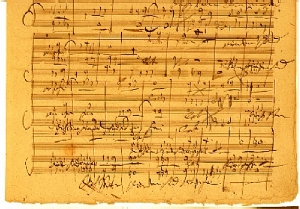Job Journal IV: Struggles
I’m trying to get my struggles with Job into words. I’m coming at the book from a perspective of faith, but there are some snarls that I haven’t untangled yet. It gets to the question of trust. I have faith that God is, and that he is good. But the effect of this book is to expose all the vulnerabilities in the link between belief, and trust.
1. Covenant God. I understand that God wants to be loved, not treated like a vending machine that can be accessed with good-performance tokens. But throughout scripture he identifies himself as a God of covenants. As early as Genesis, he defines some transactional terms of relationship: you can dwell in my paradise if you do not eat of the fruit of the tree. He imposes a condition on us from the start, and he abides by the terms he has set, and ejects humanity from the garden.
Other covenants with Abraham, Isaac and Jacob, and with David, follow a similar pattern. He sets up terms of relationship and promises to abide by them. He imposes conditions on himself. And in the New Testament, the “new covenant” establishes new terms: trust in the blood of the Son and receive new life.
How do we reconcile this God with the God of Job, who seems to say, “You cannot expect anything from me. I cannot be predicted. I cannot be boxed. I cannot be trusted to protect you from false accusers.” There must have been some definable expectation that led Job to express his devotion in the way he did: sacrifices, prayer, uprightness. Wasn’t he following terms God had set? Why didn’t that obligate God to hold up his end of the bargain?
2. Unconditional love. Is there even such a thing, biblically, as human love for God that’s pure? That seems to be what he wants from Job: to be loved and trusted even though he offers no assurance that any of Job’s righteousness has mattered at all as an expression of his love.
But what about scripture’s emphasis on God as the initiator: “We love him because he first loved us.” That’s a causal statement that relegates all conceivable possibilities for human love to the status of response. Isn’t a “response” always conditional? Dependent on the condition that what we’re responding to exists?
3. Prayer. How do we reconcile the Bible’s view of prayer with this one? The New Testament says,
- Ask and you shall receive
- You have not because you ask not
- In all things by prayer and supplication with thanksgiving present your requests to God
- If anyone lacks wisdom let him ask for it
- Persist (parable of the landlord who answers the door because of persistent knocking); ask, seek, knock and the door shall be opened
- “Woman, my time has not yet come” — yet Mary doesn’t take no for an answer, and Jesus turns water to wine in the first of his signs
- Numerous examples in the Old Testament show kings (Hezekiah) and prophets (Elijah) petitioning God to good purpose
But the action of Job seems to say,
- Ask, persist, knock, and you shall be rebuked
- Make your requests known to God and you shall receive no answer (Job’s queries about justice)
At the opposite extreme is the popular view of Jesus the insipid, the gentle pal who sits on the swing with me in the meadow, keenly interested in all the blather of my tiny world. That’s not who I’m expecting God to be! But I am needing coherence. Long ago in college, my philosophy professor once quoted Lewis as saying something like, “If God’s circle is our square, then we have no basis on which to relate.” That he is bigger, stronger, wiser, more glorious, more holy — all of this I resoundingly affirm. But if he is simply Other in ways that can never be understood… Well, I’m trusting that he’s not that. But it’s a trust that’s being challenged by my admittedly very unfinished understanding of this book.
Last thought (for now): God’s answer was good enough for Job. Surely there’s something I’m missing if it’s not good enough for me, sitting here without boils or dead relatives or lost fortunes.


